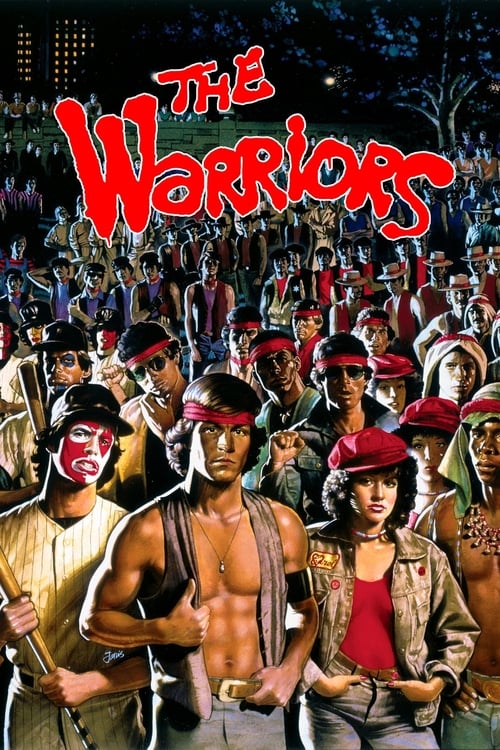
Title: The Warriors
Year: 1979
Director: Walter Hill
Writer: Walter Hill
Cast: Michael Beck (Swan),
James Remar (Ajax),
David Patrick Kelly (Luther),
Dorsey Wright (Cleon),
David Harris (Cochise),
Runtime: 94 min.
Synopsis: Prominent gang leader Cyrus calls a meeting of New York's gangs to set aside their turf wars and take over the city. At the meeting, a rival leader kills Cyrus, but a Coney Island gang called the Warriors is wrongly blamed for Cyrus' death. Before you know it, the cops and every gangbanger in town is hot on the Warriors' trail.
Rating: 7.7/10
Urban Odyssey Unraveled: The Warriors’ Cinematic Sprint Through a Stylized Night
/10
Posted on July 21, 2025
Walter Hill’s The Warriors (1979) is a pulsating artifact of late-1970s American cinema, a film that transforms New York City’s nocturnal underbelly into a mythic battleground. Adapted from Sol Yurick’s novel, Hill’s direction leans into a stylized, almost operatic vision of gang warfare, prioritizing visual and rhythmic momentum over narrative depth. The screenplay, co-written by Hill and David Shaber, is lean to a fault, favoring archetypal characters and terse dialogue over psychological complexity. Yet, this spareness amplifies the film’s primal energy, turning a simple premise a gang’s perilous journey home through rival territories into a Homeric quest through a neon-lit urban labyrinth.
The cinematography by Andrew Laszlo is the film’s beating heart. His lens captures New York as a chiaroscuro fever dream, with wet streets reflecting garish subway lights and shadowed alleys pulsing with menace. Laszlo’s dynamic framing low angles, tracking shots, and sudden zooms imbues every chase with kinetic urgency, making the city itself a character, both antagonist and muse. The Warriors’ sprint across boroughs feels less like a plot device and more like a ritualistic passage through a dystopian underworld, an effect heightened by Barry De Vorzon’s synth-heavy score. The music, blending pulsing electronica with tribal drums, underscores the film’s fusion of modern grit and ancient myth, though it occasionally overreaches, veering into dated excess.
Acting in The Warriors is uneven but purposeful. Michael Beck’s Swan, the stoic leader, anchors the ensemble with quiet intensity, though his emotional range feels constrained by the script’s minimalism. James Remar’s Ajax, by contrast, crackles with volatile charisma, stealing scenes with a raw, unpredictable edge. The supporting cast, including rival gang leaders, often leans into caricature, which aligns with the film’s comic-book aesthetic but sacrifices nuance. This theatricality, while deliberate, exposes the screenplay’s thin character development a flaw that keeps the film from transcending its genre roots.
Hill’s direction masterfully balances camp and menace, crafting a cult classic that revels in its own artifice. Yet, the film’s reliance on visual bravado over narrative substance leaves it vulnerable to accusations of shallowness. Its portrayal of gang culture, while stylized, risks romanticizing violence, a critique Hill sidesteps by leaning into allegory rather than realism. The Warriors remains a bold, visceral experience, its flaws inseparable from its audacious charm a cinematic sprint that dares you to keep pace.
0
0
